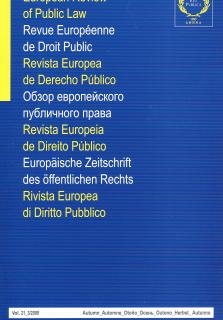
Constitutional Law / Droit constitutionnel
Northern Ireland / Irlande du nord
This chronicle analyses case law that has arisen as part of the ongoing Northern Ireland peace process and considers its implications for constitutionalism in Northern Ireland and elsewhere in the UK. It starts with a brief analysis of the unique constitutional features of the Belfast/Good Friday Agreement of 1998 and the challenges that those present for judicial decision-making in a traditionally conservative common law setting. The chronicle next examines case law in three areas related to the process of transition in Northern Ireland, viz (1) the constitutional status of the Agreement and its implementing legislation; (2) equality and representation in Northern Ireland’s institutions; and (3) truth-telling in respect of use of force by the State during the Northern Ireland conflict. It notes how the case law has been inventive in some instances and less so in others, and suggests that such inconsistency is inevitable at a time of transition and change. The chronicle nevertheless also suggests that there is much within the inventive case law to indicate the beginnings of a new judicial approach to constitutional questions in Northern Ireland and that this has a broader relevance to ongoing debates in the UK as a whole.





















